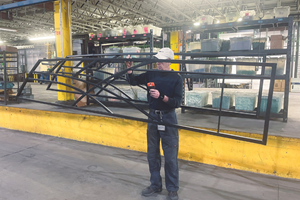Better Adhesion
How can we get better adhesion around the holes so the powder does not crack and separate from the aluminum substrate?
Q: We apply a black polyester powder over an aluminum die-cast part for an automobile manufacturer. The part has several holes in it to fasten it to the body of the car. Initial adhesion is good, but sometimes the powder cracks around the hole when the fastener is tightened down. We use a six-stage pretreatment system with iron phosphate and a DI water rinse to process ferrous and nonferrous metals. We have a fluoride additive in the treatment stage for the nonferrous metals. How can we get better adhesion around the holes so the powder does not crack and separate from the aluminum substrate? J.D.
A: The failure of adhesion around the holes is related to several issues. Aluminum has a natural oxide layer that is tightly adhered and may vary from part to part. Your pretreatment process doesn’t contain a true conversion coating for aluminum, so the aluminum surface may still be reactive or have an oxide layer when you apply the coating. Also, some powder materials may be more brittle than others and your film thickness may vary at the affected area. It’s also likely that the amount of pressure put on the part at the hole varies within the operation of fastening the part to the body.
The method used to clean and treat the surface and powder material used is the same for each part, yet you say cracking occurs on some parts, not all. The current pretreatment process is adequate for removal of organic soils—it provides some etching of the aluminum die-cast surface and the rinsing is dependable. It doesn’t provide significant reaction at the surface; it doesn’t remove inorganic soils and it doesn’t apply a conversion coating. This will provide normally good adhesion but it doesn’t provide much tolerance of other negative variables.
The powder material is probably formulated with excellent hardness and resistance to scratching, but harder films are not very flexible and will not withstand much impact. If the film is applied too thick, it may be somewhat softer in the center of the layer and more prone to cracking under stress. If the powder is applied over a surface with no conversion coating and an unreliable level of surface roughness, the crack will go all the way to the substrate and the powder will separate from the substrate.
Abrasion will improve the mechanical adhesion to compensate for lack of a conversion coating. See if you can develop a reliable method of abrading the area around the hole. You should also consider a more flexible powder coating if there is something available that will meet the requirements and specifications of the end user but have greater impact resistance. Control the film thickness in the affected area and keep it below 3 mils.
Consider a pretreatment process that will apply a true conversion coating to the aluminum. You should also look into a zirconium oxide conversion coating. Some of these nano-scale technologies do a better job in multi-metal systems than the traditional approach of fluoride in an iron phosphate solution. They can also save cost because they don’t require heat or produce sludge levels associated with phosphate conversion coatings. Performance is equal to or better than iron phosphate, and adhesion on the aluminum should be better.
Related Content
Powder Coating Overcomes Post Forming
Six Sigma methodology, open communication, and collaboration produce results for leading boat manufacturer.
Read More12 Ways to Improve Your Powder Coating Quality
Often overlooked powder coating procedures that can help you elevate your quality, streamline your operations and improve your profitability.
Read MoreAdjusting Current and Voltage When Powder Coating
Which manual powder coating gun setting is better to adjust, voltage or current? Jeff Hale of Gema USA discusses when to use different settings on your powder gun to achieve optimal results.
Read MoreProducts Finishing Reveals 2023 Qualifying Top Shops
Each year PF conducts its Top Shops Benchmarking Survey, offering shops a tool to better understand their overall performance in the industry. The program also recognizes shops that meet a set of criteria to qualify as Top Shops.
Read MoreRead Next
Episode 45: An Interview with Chandler Mancuso, MacDermid Envio Solutions
Chandler Mancuso, technical director with MacDermid Envio discusses updating your wastewater treatment system and implementing materials recycling solutions to increase efficiencies, control costs and reduce environmental impact.
Read MoreA ‘Clean’ Agenda Offers Unique Presentations in Chicago
The 2024 Parts Cleaning Conference, co-located with the International Manufacturing Technology Show, includes presentations by several speakers who are new to the conference and topics that have not been covered in past editions of this event.
Read MoreEducation Bringing Cleaning to Machining
Debuting new speakers and cleaning technology content during this half-day workshop co-located with IMTS 2024.
Read More







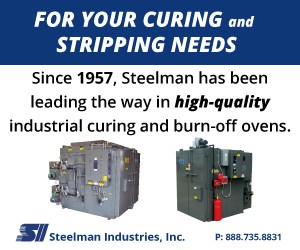
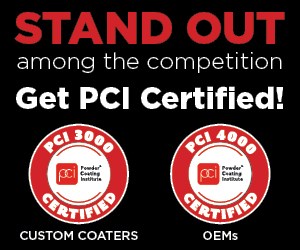

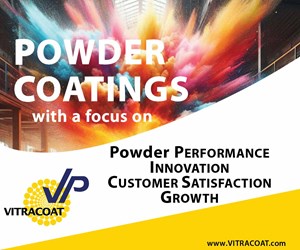
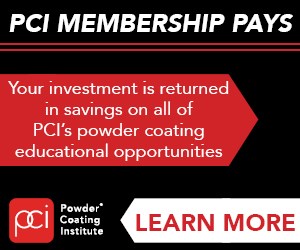






.jpg;maxWidth=300;quality=90)
